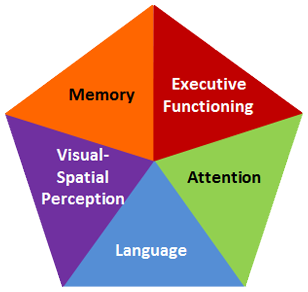
The Cognitive Therapeutics Method™ is Home Care Assistance’s proprietary program designed to promote brain health and quality of life through cognitively stimulating activities in the familiar home environment. The Cognitive Therapeutics Method™ offers:

The Cognitive Therapeutics Method™ was developed based on cutting-edge scientific research and is consistent with growing evidence such as the ACTIVE study funded by the National Institutes of Health, suggesting that cognitive stimulation is associated with long-term brain health benefits. The Method currently includes over 20 activities targeting not just memory, but the five cognitive domains.
© 2024 By Home Care Assistance Of Jefferson County. All Rights Reserved. Powered By Mind Mesh Technologies.

